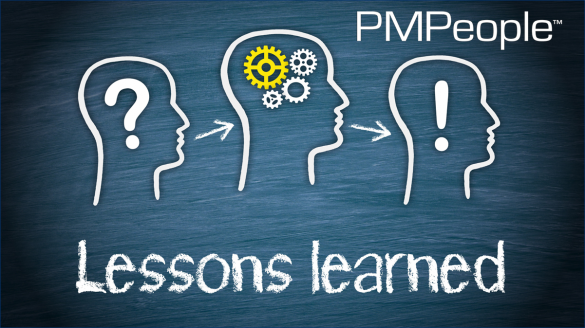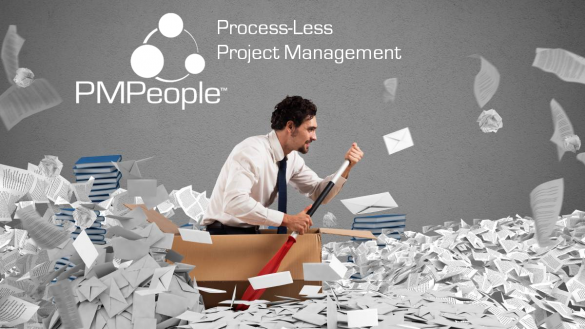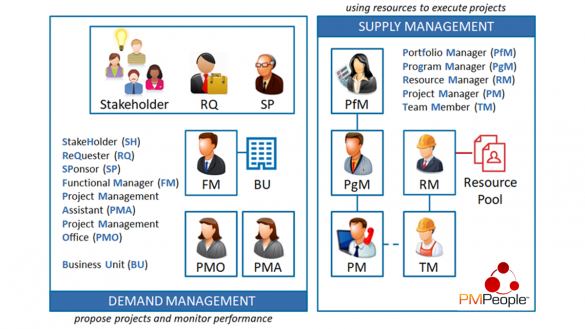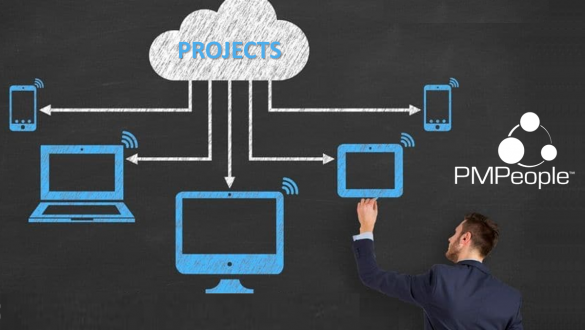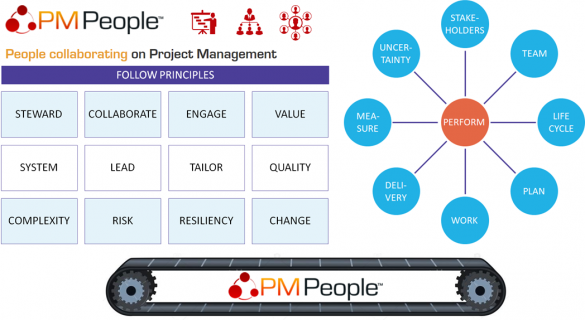Lessons Learned in Projects
Registering lessons learned often requires the project team to write some formal documentation. Discussions about lessons learned typically occur during the project closure meeting. Team members don’t remember the details, are reluctant to write about mistakes, and are already thinking about the next project. These discussions are valuable for personal growth and building professional relationships but, after the meeting, there is no reusable document with explicit knowledge. In PMPeople, the project management team can register lessons learned as they occur, reuse lessons from other projects, and prepare their own for future reuse.
Artificial Intelligence in Project Management Tools
As IA has already transformed the digital advertising industry, we believe it can also plan projects, elaborate reports, assign tasks, automate notifications and recommendations, evaluate people’s performance, discover issues, analyze trends, and so on. However, it is still too early to talk about artificial intelligence in the field of professional project management. In order for software to assist us in planning baselines, tracking progress, suggesting actions, anticipating issues, evaluating performance, etc., it is essential to have a historical database of projects within the organization’s context, on the organization’s private servers.
Process-Less Project Management
Managers don’t buy project management. They approve projects but don’t assign anyone to oversee the big picture, anticipate problems, make forecasts, be accountable, and ultimately, take responsibility for achieving success. They see that the project team self-manages through meetings, which they sometimes attend for information and other times to address issues on the fly. A project professional would know how to do it better, but since we have a reputation as bureaucrats (documents, processes, workflows, and more meetings), they prefer crises, that is, reacting by improvising when problems arise and it’s too late.
The Future of Work (in Projects)
The presentation of Microsoft 365 Copilot made us imagine a future with AI assisting knowledge workers. Will project teams work with AI in the future? If you are a project professional, don’t be afraid: AI will not replace you. However, another professional who are more proficient in technology may take over. In the future, PPM tools will include AI. In the meantime, as a project manager, you should master tools for 1) self-organize; 2) team collaboration; 3) schedule and control time and costs; and 4) manage multiple projects with many people.
Individuals and Interactions over Processes and Tools (in Projects)
Process-driven project management has been effective until the 21th century. However, today’s projects require people collaboration for many compelling reasons: 1) Requirements are usually not clear enough, and project scope has to be progressively elaborated; 2) Controlling changes, time and cost is less important than value delivery and meeting the business goals; 3) Managers need to make informed real-time decisions, anticipating issues while there are still options to correct project performance, and they don’t have time to read comprehensive documentation from dozens or hundreds of projects; 4) Just one person to manage the whole project is not effective: collaboration is needed because the best solutions may come from one of many stakeholders.
Projects in the Cloud
Most professionals are always connected. Knowledge workers are used to collaborating on objects in the cloud: they alternate their laptop, tablet, or mobile phone, to work concurrently on the same version of the document, spreadsheet, presentation, article, web design, software code, prototype, etc. No need to download, install, send, merging changes, etc. All of them working together on the same version of the truth. In the project economy, it is also time to digitize management, knowledge and interactions between people working on projects, programs, and portfolios.
Is your PMO producing Reports or delivering Value?
Most PMOs are seen as internal cost centers adding bureaucracy to projects. PMPeople helps people collaborate on project management professionally, in the cloud, using different roles. PMOs can distribute many management activities, having more time for anticipating problems and delivering value. With PMPeople, the PMO can grow from being a cost center to lead the company in the Project Economy.
Frequently Asked Questions on PMPeople
Feel free to ask more questions about PMPeople:
1) What is PMPeople tool?
2) How much does PMPeople cost?
3) What if I want to stop paying?
4) How is the upgrading process?
5) Are there any discount programs?
6) How is PMPeople tool compared with competitors?
7) Can PMPeople be used in agile organizations?
Controlling the Project Cost, in practice
To get the project finished under budget, we need to measure cost performance on each review date. Earned Value Management (EVM), is the ANSI 748 standard method to measure the project cost performance objectively. According to EVM standard, as of each status date, three measures are enough to analyze the project cost performance. Professional project managers can practice EVM effectively with PMPeople.
Practicing the PMBOK® Guide 7th Edition with PMPeople
PMPeople can be seen as a technology framework for practitioners who want to follow the new edition of the PMBOK: As a project manager, I can follow the 12 principles just updating the project data in PMPeople. As a stakeholder, I can check the project management outcomes on the 8 performance domains just getting the evidence of good or bad performance directly on PMPeople.
Categories
- Business (16)
- Demand Management Roles (14)
- Frequently Asked Questions (7)
- Guide (26)
- People (23)
- Assignments (2)
- Feedback (2)
- Project Team (3)
- Tracking Time And Expenses (2)
- Process (9)
- Closing (2)
- Executing And Controlling (2)
- Planning (1)
- Project Management (67)
- Management Frameworks (18)
- Organization Owner (OO) (3)
- Project Economy (54)
- Tools (19)
- Supply Management Roles (5)
- Training (6)
- Uncategorized (1)



